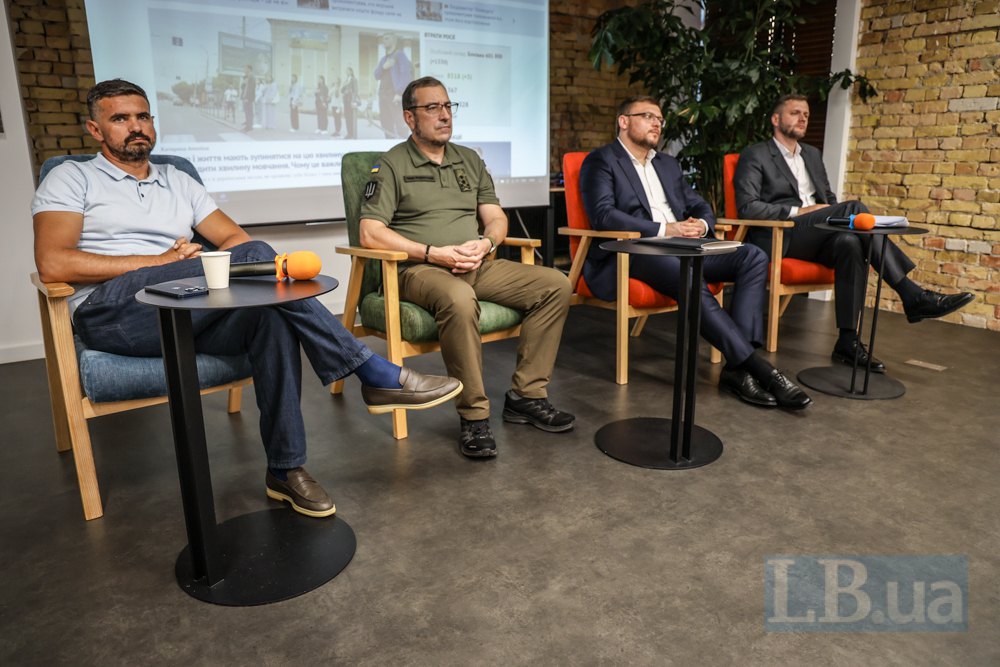
Vadym Skibitskyy, representative of the Defence Intelligence of Ukraine: "All those who violate the law of war and international conventions must answer"
Over the past 10 years, a whole generation of officers and generals has grown up in Russia who have made a career out of the war in Ukraine. In particular, Colonel General Sergei Kuzovlev (commander of the Southern Military District) or Mikhail Teplinsky, who in 2014 was one of the first to enter Ukraine and form the L/DPR army corps, and since the beginning of the full-scale invasion has been in charge of airborne troops and was among the commanders of Russian troops in Ukraine. Since 2015, according to Vadym Skibitskyy, a representative of the Defence Intelligence of Ukraine, the DIU has been collecting evidence of the presence of Russian troops in Ukraine, equipment, and information about war crimes and weapons used by them. All those who violate the law of war and international conventions must be punished.
"There is a lot of evidence and documents about how the aggression was planned and executed. We are collecting everything from combat documents, working maps to samples of Russian-made military equipment that are currently being used on the battlefield," said Skibitskyy.
According to him, the evidence base for Ukraine's lawsuit against Russia in the International Criminal Court in The Hague was based, among other things, on data from Ukraine's intelligence community and the Defence Intelligence of Ukraine."This is a very hard work, but believe me, every year we file lawsuits in international courts regarding violations of international law by the Russian Federation. This includes the illegal export of grain from our territory through the Crimean peninsula, the occupied Crimea, the occupied ports of Mariupol and Berdyansk,’ the intelligence officer stressed.
According to him, many structures and state bodies are involved in this work, and the data obtained is used to impose national and international sanctions against legal entities and individuals of the Russian Federation.
In addition, according to the information available to the DIU, Russia is beginning to have problems recruiting military personnel on a contract basis. While in 2023, it was paid 30-50 thousand rubles, depending on the region, today it is offered 1.9 million rubles in Moscow and 2.1 million in St. Petersburg, which is in charge of the Pskov Airborne Division. This is also evidence that urban residents are being recruited to participate in the war, as there are no more men left in villages with low living standards.
It is also clear from the intercepted conversations of the occupiers that the Russians are less proud of what they are doing in Ukraine: murder and rape; they are more aware that they may simply not return from the next assault. But there is no change in their behaviour.In addition to direct military action, Russia is trying to destabilise the situation inside Ukraine: it is gathering information in the temporarily occupied territories, and is quite well aware of our plans and actions in certain areas of the frontline, but, as the major general notes, the enemy does not have a powerful agent network. Arson attacks on military vehicles and leaks of information about the movements of our troops do occur, but not on the scale that some people claim, he said.
Russia is also active abroad to undermine Ukraine's image in the world. According to Skibitskyy, the intelligence service is aware of the preparation of an evidence base by a parliamentary commission of the State Duma of the Russian Federation on the treatment of children in Ukraine, which propagandists plan to use to justify armed aggression to the international community using pro-Russian and Russian media in European countries.
"The task of the intelligence community is to expose such figures, such campaigns, and media outlets that take not only an openly anti-Ukrainian position, but are the Kremlin's mouthpiece for communicating their information to the international community,’ said Skibitskyy.
Russia has also begun actively working with Ukrainian citizens abroad to erase their national identity and prevent them from returning home.
"Russians are creating societies, cultural centres, and promoting the loss of identity through children's education and the church. The intelligence community, together with the Ministry of Foreign Affairs, military attaches at embassies, the church, NGOs, media platforms and the media, are trying to counteract this," said Vadym Skibitskyy.
Victims' testimonies and open data analysis are important to establish justice
Nataliya Humenyuk, founder of the Public Interest Journalism Lab and The Reckoning Project, a journalist who directly documents Russian war crimes, notes that for victims and witnesses, correct communication with investigators and attention to their cases already ensures minimal justice.
"And incorrect communication, when experience is devalued, when cases are lost, when some people are not listened to at all, when people simply do not know what has been happening with these cases for three years, is an utter injustice," the journalist said.
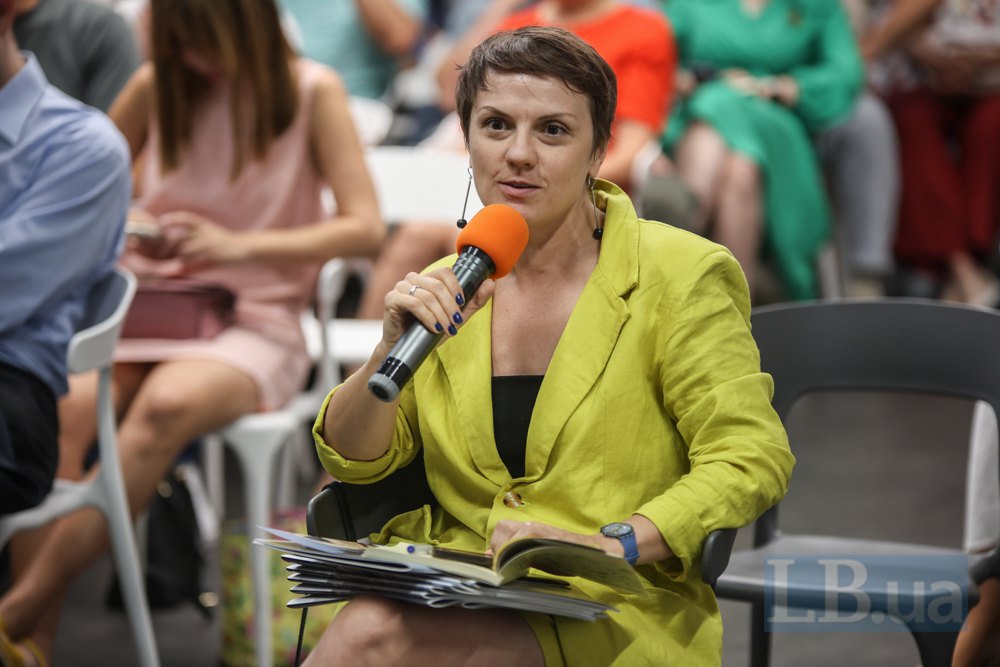
In addition, she notes, people who feel injustice and do not know the names of their offenders, Russian criminals, tend to take their hatred out on those they can reach, such as an old lady who defended the Soviet Union on a bench.
"There is a demand for frontier justice, I felt it. We understand that it can happen. And this is certainly not the state we want,’ said the founder of The Reckoning Project.
"These minimal things that we can do to overcome this injustice are key to preserving society," Humenyuk said.
At the same time, Vadym Skibitskyy, a representative of the Defence Intelligence of Ukraine, added that the testimonies of victims are also important because they are valued by international bodies more than intelligence. So is the analysis of information from open sources.
"At the first hearings in the International Criminal Court, when the issue of the Russian Federation's support for terrorist activities was considered, 75% of the information was open - from Internet resources, research by NGOs, journalists, and various structures that collected it and provided evidence of the Russian Federation's war crimes," said the DIU representative.

"This activity needs to be stepped up. This work should be a joint effort of both the state and society. Then there will be a result," said Skibitskyy.
During the discussion, an officer of the Defence and Security Forces of Ukraine, journalist Artem Shevchenko recalled the investigative project The Book of Executioners of the Ukrainian People initiated by President Volodymyr Zelenskyy in the Spring of 2022, which is a database of Russian military personnel who committed crimes in Ukraine. He noted that today the project is developing, filled with the intelligence community and enthusiastic researchers.
"I would urge everyone who is interested in this topic, both journalists and experts, to use this project. It can and should become one of the most important sources of verified, accurate information about what the enemy is doing on our land," Shevchenko said.
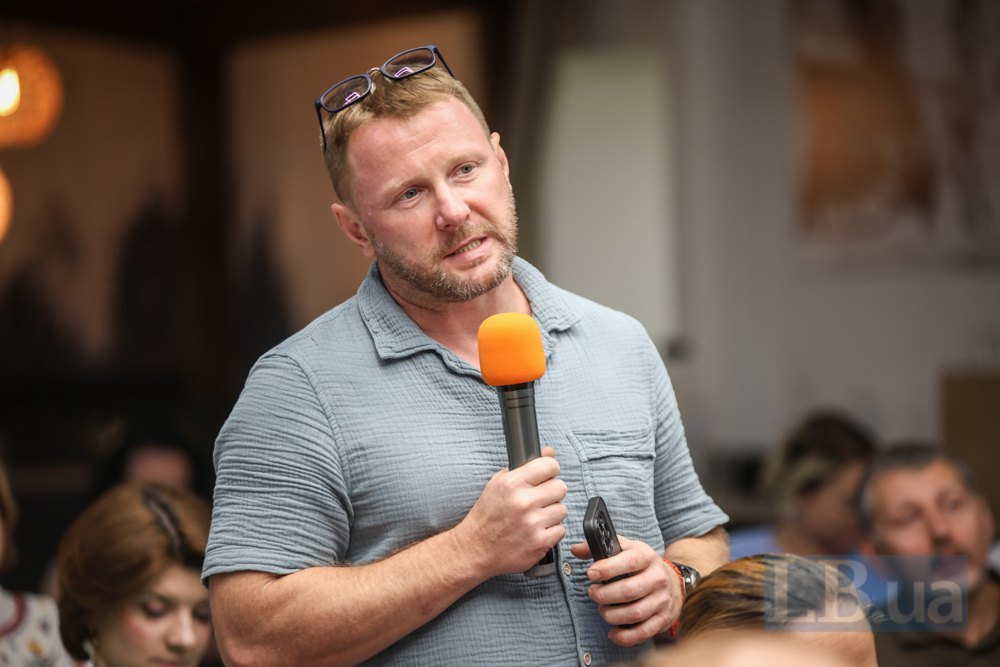
NABU Director Semen Kryvonos and NACP Head Viktor Pavlushchyk represented the anti-corruption agencies during the discussion.
According to Semen Kryvonos, the NABU has been the most effective in the fight against corruption over the eight years of its existence. In 2023 alone, more than 100 indictments were sent to court. The most high-profile cases include the case of the Chief Justice of the Supreme Court; four judges of the Court of Appeal; Privatbank; the head of the Antimonopoly Committee; the Deputy Minister of Energy; the exposure of several MPs and a major developer for offering bribes to the Deputy Prime Minister and the former head of the Ministry of Reconstruction, etc. In addition, the High Anti-Corruption Court has already handed down 200 verdicts. This shows, Krynovos says, that the NABU's work is a response to the public's demand for justice. However, this is not enough, he adds.
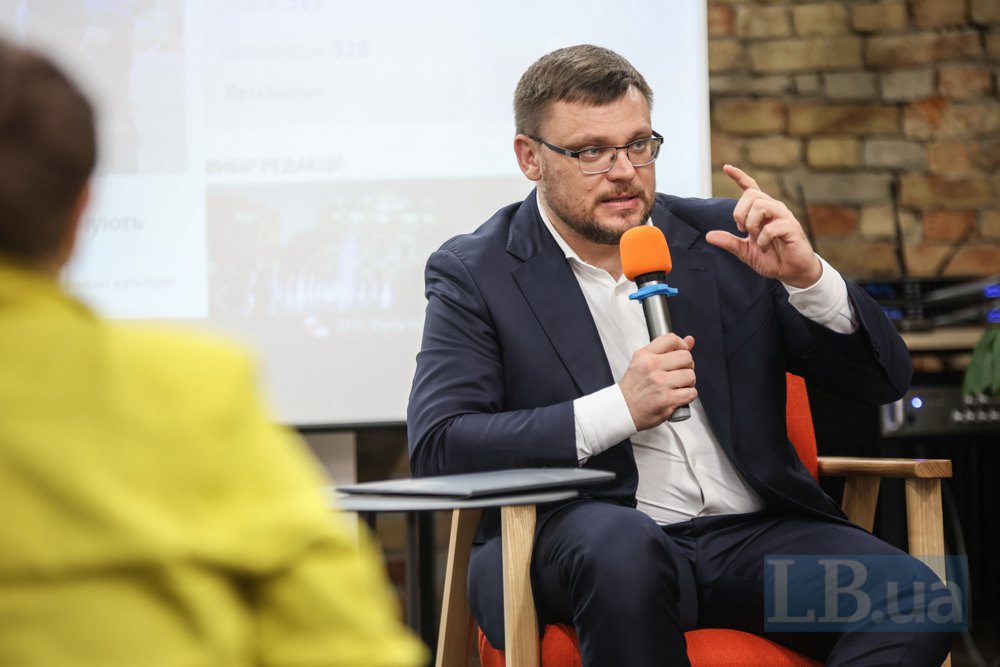
Detaining, exposing, and investigating is, of course, very important. But it is important how the state and society then react to these things. How they fill in the gaps that create injustice. The mechanisms that contribute to the development of corruption," said Semen Kryvonos.
In his opinion, the entire state apparatus needs structural changes. First and foremost, the judicial system.
"We have many examples of judges being brought to justice and there are even sentences with real sentences. But does this change the situation fundamentally? No, it doesn't. This gives us an understanding of the need for changes in the justice system, but we need to complete this reform as soon as possible, because the judicial system is also responsible for restoring and ensuring justice," he added.
In addition, the head of the Anti-Corruption Bureau said, the sentence for a detective or investigating prosecutor for unlawful or unjustified prosecution should be increased. Currently, it is one year, and one has to wait for years, if not decades, before a verdict is passed.
He also called for the adoption of a law regulating the mechanism of plea bargaining.
"This draft law can significantly speed up the consideration of multi-episode criminal proceedings, significantly relieve the court, ensure the goals and objectives of the institution of criminal prosecution as such - that is, prompt prosecution, compensation for damages and simultaneous exposure of the next offender. In my opinion (and I am supported by the SAPO and international partners), all of this together and at the same time will significantly relieve the system," said Semen Kryvonos.
Masi Nayyem, a human rights activist and member of the Armed Forces of Ukraine, joined the discussion and pointed out another systemic problem: the principle of irreversibility of punishment does not work in the country. As an example, he cited the case involving his former partner at Miller Law Firm, Oleksiy Nosov (he was notified of suspicion of attempting to bribe a NABU detective and a SAP prosecutor in the case of seizing electricity from NPC Ukrenergo and legalising the proceeds of its sale in the amount of UAH 716 million - Ed.)
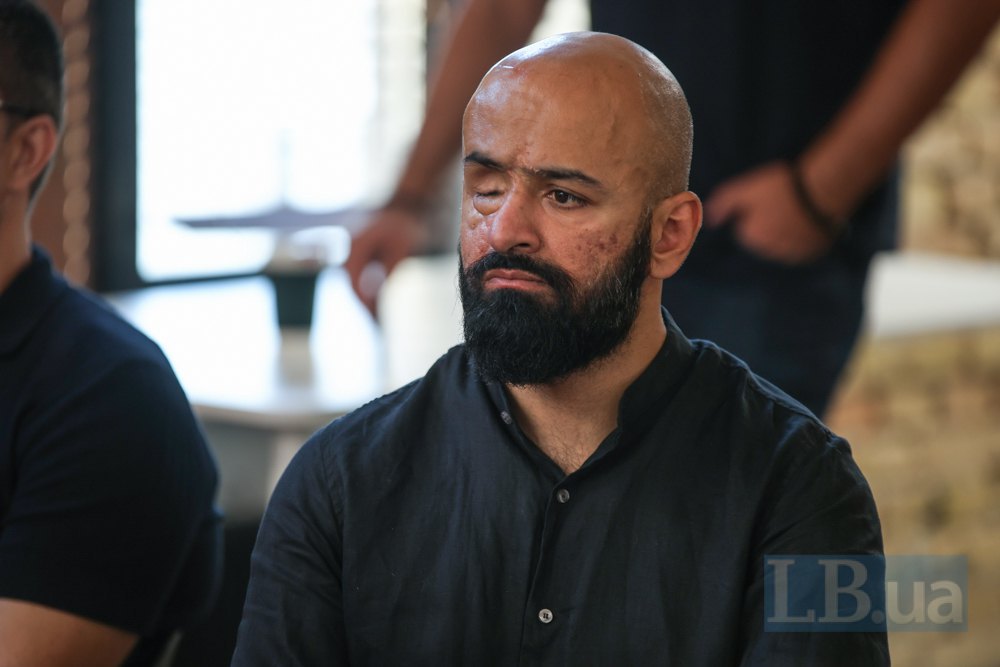
In response, Semen Kryvonos said that NABU and SAPO employees undergo verification and a multi-level competitive procedure, internal control and a system of checks and balances are in place.
"We are under constant control. What about the rest of the law enforcement system? The issues are deep, not even rhetorical, and need to be addressed," said the NABU head.
According to NACP Head Viktor Pavlushchyk, the Agency on Corruption Prevention uses both punitive and preventive functions in its activities, which are often intertwined.
In the first case, the Agency is actively introducing the institution of whistleblowers, a rather effective system that involves informing law enforcement agencies about corruption for a reward.
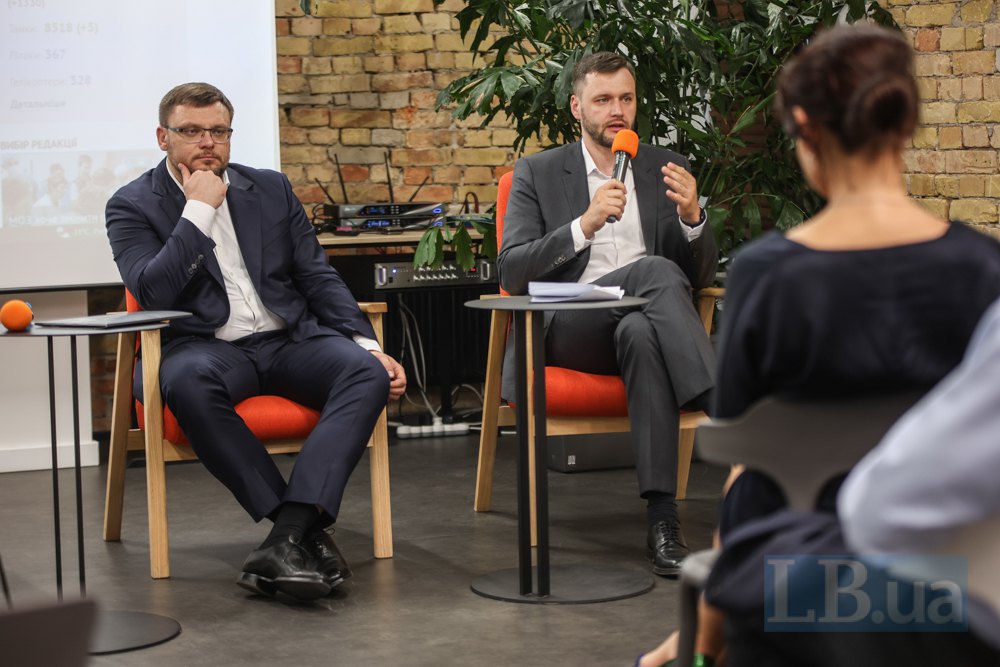
"There are two cases of whistleblowers thanks to the NABU. There are decisions of the High Anti-Corruption Court that have entered into force. One case has a reward of UAH 13.3 million, the other - UAH 1.68 or 1.69 million. These people are waiting for their payment," said Pavlushchyk. However, he adds that it is currently impossible to make the payment - the legislation does not allow for it. However, the Agency is already working with the Cabinet of Ministers to address this and other gaps, such as differences in the definition of the term whistleblower and additional protection for people who expose corruption.
An important foundation has already been laid, said Pavlushchyk, and most importantly, the public's attitude to this anti-corruption tool has changed dramatically.
"For a country with a post-Soviet background, we have done a lot of work... I can say that the understanding and perception of whistleblowers in Ukraine has changed radically. They are no longer snitches or some negative characters who give information about others. These are people who draw attention to violations, to the illegal activities of others and focus on certain gaps, who can identify systemic corruption or systemic problems that need to be improved. So this is definitely a positive case. Of course, I will advertise it and say that whistleblowers are good," assured the NACP head.
As an example of a mixed (punitive and preventive) approach, Pavlushchyk called the verification of declarations, among which only those with the highest risk rating are examined in detail.
"The percentage of declarations that undergo full verification is very low out of the total number of submitted declarations. To prevent illegal actions, we have introduced a risk-based approach to selecting declarations for full verification. We have a software product, logical-arithmetic control, which allows us to select the most risky declarations for full verification without checking the same people year after year, who are often also honest. And we emphasise this in our actions, because there is no need to check the same MPs or ministers every year if there are no grounds for doing so. Declarations that receive the highest risk rating based on an objective mathematical approach are selected for full verification," said the Agency's head.
In addition, the NACP identifies and minimises corruption risks in various areas and in the activities of individual enterprises, provides recommendations to the relevant authorities, and conducts anti-corruption expertise of legislative acts.
It also implements educational activities in schools and universities, and implements the state communication strategy in the field of anti-corruption approved by the Cabinet of Ministers in December 2023.
At the same time, Pavlushchyk added, the NACP has drafted a bill to limit the timeframe for prosecution and prevent abuse of procedural rights by all parties: prosecution, defence and court. He noted, citing data from research on court decisions on criminal offences for 2022, that the average duration of a corruption case in Ukraine from registration of criminal proceedings to the final verdict is seven years. According to him, the announced draft law will make it impossible to delay cases for years.
Justice as trust in government and state institutions. Business perspective
Ihor Liski, businessman and chairman of the supervisory board of EFI Group, noted positive developments in the fight against corruption by the NABU, SAPO and NACP. According to him, the country has ‘an understanding of the presence of punishment’, including for top officials and oligarchs.
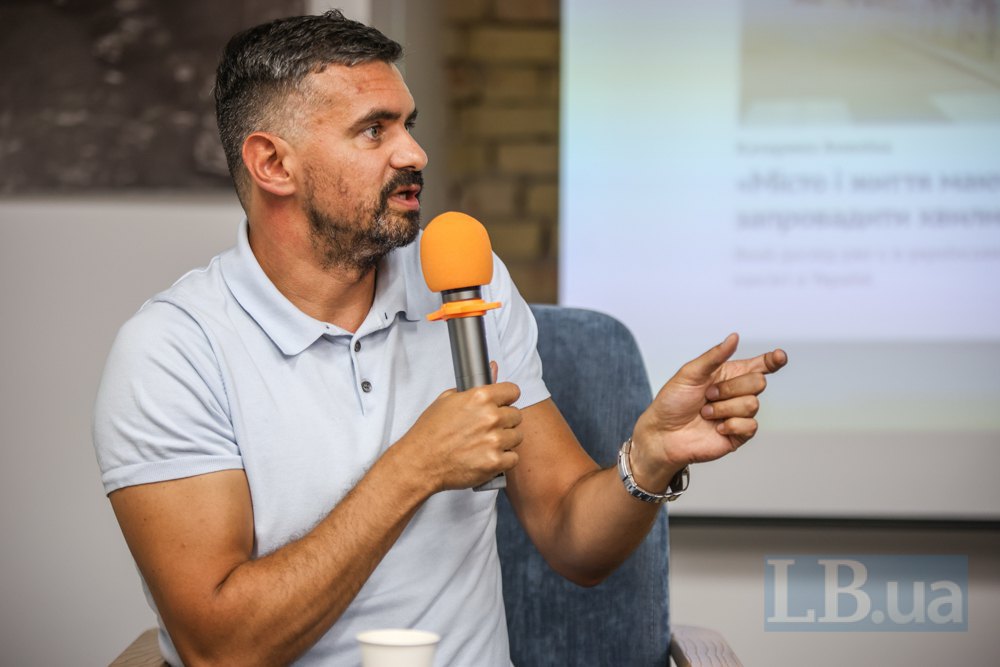
"It's the right thing to do. But I really wouldn't want it to turn into a game of Catch me if you can. Like, whoever gets caught loses. It's like a social contract: if you want to be successful, go to power, try to steal without being caught by NABU," the businessman said.
In his opinion, the state cannot pave the way only by punishing top corruption - it is long and expensive. It's not enough to show how not to do it, it's also necessary to set the right example, Liski believes.
To do this, it is necessary to completely change the approach to the selection of personnel to government agencies - not to hire ministers, deputies, judges who are prone to corruption, the businessman suggested.
"Building a system with the presumption of guilt is very expensive. When everyone is guilty, we suspect everyone. In a proper modern democratic country, the system is built on 90% presumption of innocence, and there are about 10% of deviations that are monitored by law enforcement agencies. When we suspect everyone, when we understand that everyone can steal, that every MP and minister needs to be watched, it is very expensive. We will not build either an effective or a fair state in this way," Ihor Liski is convinced.
He suggested introducing a system of social lifts so that honest, decent, responsible people, ‘who want to change something, not steal’, could come to power.
"They need to be told that they are decent, responsible, can live in dignity and benefit the state and society. And for those who deviate, here's a punishing sword. And not the other way round: you are all thieves - we will certainly not catch everyone, but we will catch someone. This is not how it works," the businessman said.
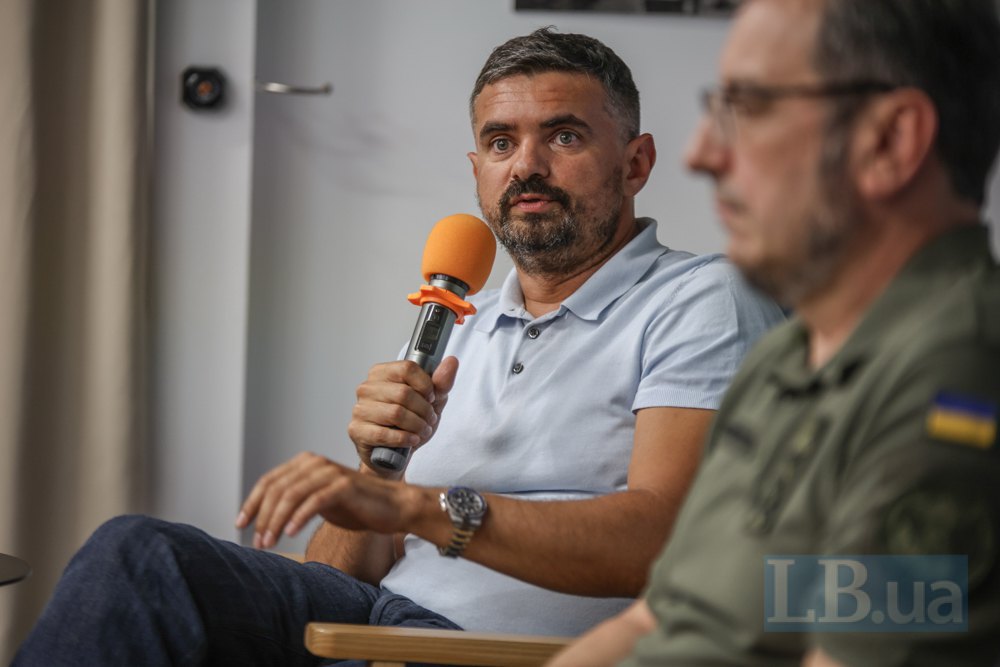
(Masi Nayyem suggested, for example, that veterans should be involved in the NABU as people who have higher public trust and who have a ‘greater value motive’. The head of the Bureau, Semen Kryvonos, said that such a concept was already being developed, modelled on the FBI's veteran programme).
"Usually, it takes at least one generation, and preferably two, to change a social contract or role behaviour. Unfortunately, we don't have that. If Ukrainians do not believe that Ukraine is a fair state in which they trust the institutions of power, the president, the army, the SBU, the NABU, the TRC, we will lose. This is a very high price to pay, and time is running out. We could say that our children will live in an honest, fair state, but we don't have that time. We may simply be gone, and our children will live in another state. Therefore, we have to make extra efforts," said Ihor Liski.








